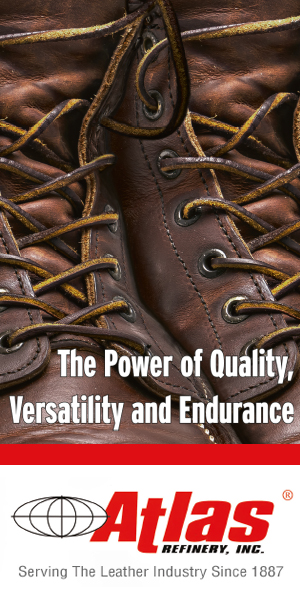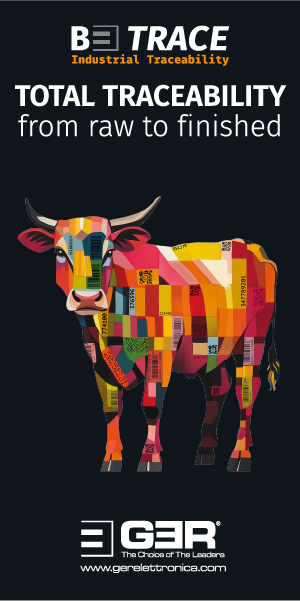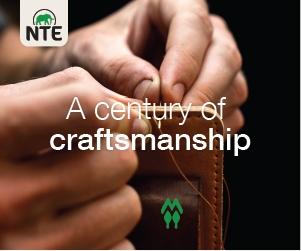‘Girl maths’ adds up

Renting out high-end handbags, shoes and clothing can be a lucrative income stream for the fashion-forward – with leather perfectly placed to provide a long-lasting contribution to circular fashion.
Renting out luxury clothing and bags isn’t a new idea, with the Vestiaire Collective and Rent The Runway forging successful paths in recent years. They demonstrate the appetite for high-end items on a short-term basis. The second-hand footwear, clothing and accessories market tripled worldwide between 2020 and 2022, according to research firm Boston Consulting, and at that point had an estimated value of $120 billion per year. This market was worth up to 5% of fashion sales at that time, but the analysts said this could grow to 40% in future.
Driving this, according to the co-founder and CEO of UK-based platform Hurr, is a shift in consumer attitudes. Victoria Prew launched the business, with Matthew Geleta, in 2018 as a peer-to-peer lending platform – the name derives from the Dutch word huur, meaning hire, and is also a play on ‘her’. Quickly, the pair realised they could capitalise on an underserved niche: using the same technology for larger-scale rental through high-end retailers, which at the time was fairly new in the UK.
One of the first signatories was Selfridges, signing a partnership in 2020. As well as using its platform, the retailer brought Hurr’s technology into the London Oxford Street store, which served as great publicity. Sebastian Manes, executive buying and merchandising director at Selfridges, said at the time: “This service opens a new way for our customers to trial luxury fashion, while also encouraging complete flexibility – maximising opportunity and minimising waste.”
As this infers, it provided a double win for the retailers: monetising pieces that perhaps the average person could not afford, while promoting their own ‘circular’ ambitions. This was one of the draws for luxury online retailer Net-a-Porter, which partnered Hurr at the end of last year. Vikki Kavanagh, managing director of Net-a-Porter and menswear equivalent Mr Porter, said its rental edit is “key to enriching the global ambitions of our circular fashion offer, inspired by our customers’ voices and their growing interest to keep exploring how we can extend the life of luxury products together”.
More than 100 brands, including Mulberry, plus retail platforms Matches Fashion and Depop have followed suit. This first-mover advantage on the big retailers has led to Hurr being named one of the fastest growing UK start-ups. Victoria Prew was named one of Forbes’ ‘30 under 30’ most influential people in Europe, in the retail and commerce category, in 2021. “The future of fashion is a rent-buy model,” she says. “We can now say that for the same price as a high street dress, you can have the real thing, by renting it.”
Power of influence
At Hurr’s core is mobilising the Gen Z consumers (teens up to mid-20s), an image-conscious group who have grown up with social media but who also have a perceived demand for sustainability credentials. Being photographed in high-quality or unique pieces, and displaying them on their social media feeds, is an attractive proposition. These consumers see greater value in wearing something for a short period of time than in investing long term – which would also often be out of their reach financially.
Hurr offers various levels of perks to subscribers, buyers and sellers. These include earning commission for referrals and being selected for brand-ambassador roles at events. In the Affiliate programme, “rental revolutionaries use their influence to show the world how to rent and lend pieces in style”, according to Hurr. They can earn commission on rentals they drive and receive a discount code to share with their followers. Another draw is being featured across Hurr’s online platforms. It also offers loyalty benefits: every time a rental is completed, the consumer receives 5% in credit to go towards the next one. “Generation Hurr is a collective of taste and changemakers who are revolutionising the fashion industry,” claims the company. “We’re not satisfied with the status quo: we’re here to disrupt it, whether you’re big on sustainability, love creating content, want to start your lending side-hustle or love switching up your wardrobe.”
A “side hustle” has the potential to grow into a lucrative career, and another strand of Hurr’s business is encouraging users to build stock within the site. Three of its ‘top lenders’, Kelly, Jess and Paula, have created the Lender Collective to pass on their tips and advice. Between them, they have more than 1,000 items on the site, making a profit of at least £50 per rental. The women have created a series of ‘lender toolkits’ and spreadsheets, costing between £50 and £200 to download. “Whether you lend five items per month or 50-plus per week, you’ll have the solid foundations to elevate your side-hustle and achieve top lender status,” they say. “Clothes that pay us back? Now that’s girl maths.”
Ms Prew says the systems get ‘smarter’ every time a rental goes through, enabling them to predict demand, and the peer-to-peer community gives them the ability to capture trends ahead of time. They also have an “in-house garment science team” that predicts how many rentals each item should yield. “We feed back to brands on that, size and fit so they can create subsequent collections that are built to last,” says Ms Prew. Asked about recent career highlights, she comments that it is great to see someone rent for the first time and realising it’s a “no brainer”. “The shift in consumer behaviour over the past two years has been incredible to watch,” she says.
Fundraising prowess
Investors and venture capitalists have agreed Hurr is onto something unique. The most recent fundraising round, which closed in December 2023 with £4 million, took the total to around £12 million raised. A spokesperson for lead investor Praetura Ventures said: “Taking advantage of the demand among consumers to rent high fashion pieces, Hurr is continuing to establish itself in fashion, with major partnerships with luxury brands.”
Leather fits directly into this model, with its durability and longevity, and therefore value for money. Leather items on the site include a Prada bag, costing £141 for four days; Hermes riding boots, £84 for four days; Balenciaga heels, £74 for four days, or an Alexandre Vauthier red leather dress, £193 for four days.
Growth continues with Hurr increasing its headcount from 13 to 35 between 2022 and 2023, and registering as a B Corp to cement its sustainability credentials. Ms Prew has said her ambition is to create the world’s leading fashion rental platform. “In the fight for our future the fashion sector has to be circular,” she adds, “but, first and foremost, it has to slow its growth, forecast what shoppers actually want and cut overproduction.”
Selfridges was the first big major retailer to use Hurr’s platform, offering its products for lease and promoting the service in store.
Credit: Selfridges































